By Sanjaya Jayasekera
This week, poet Ahnaf Jazeem, a former victim of Sri Lanka’s draconian terrorism law, filed a petition in the Supreme Court challenging the government’s proposed new Anti-Terrorism Bill. This new law is to replace the existing Prevention of Terrorism Act (PTA), which, since its enactment in 1979 by former President J.R.Jayawardena government, was extensively used by successive governments against Tamil and Muslim youth and political opponents in the North and South of the country, to kidnap, detain, torture and kill and remand for years without trial.
Jazeem pleads from court a declaration “that the Bill in its entire content, is antidemocratic, infringes the foundational democratic fabric of the society and the democratic aspirations of the Sri Lankan people, and therefore unconstitutional, and lacks fundamental qualities required of a law for the same to be placed for approval by legislators even with a two third majority, and does not meet the threshold of democratic quality required to qualify it to be placed before the people to be approved by the People at a referendum.” The mechanism referred to here is how even “unconstitutional” laws are passed as law under the constitution of the island. Jazeem, contrary to almost all other petitioners, have refused to enforce this anti-democratic procedure.
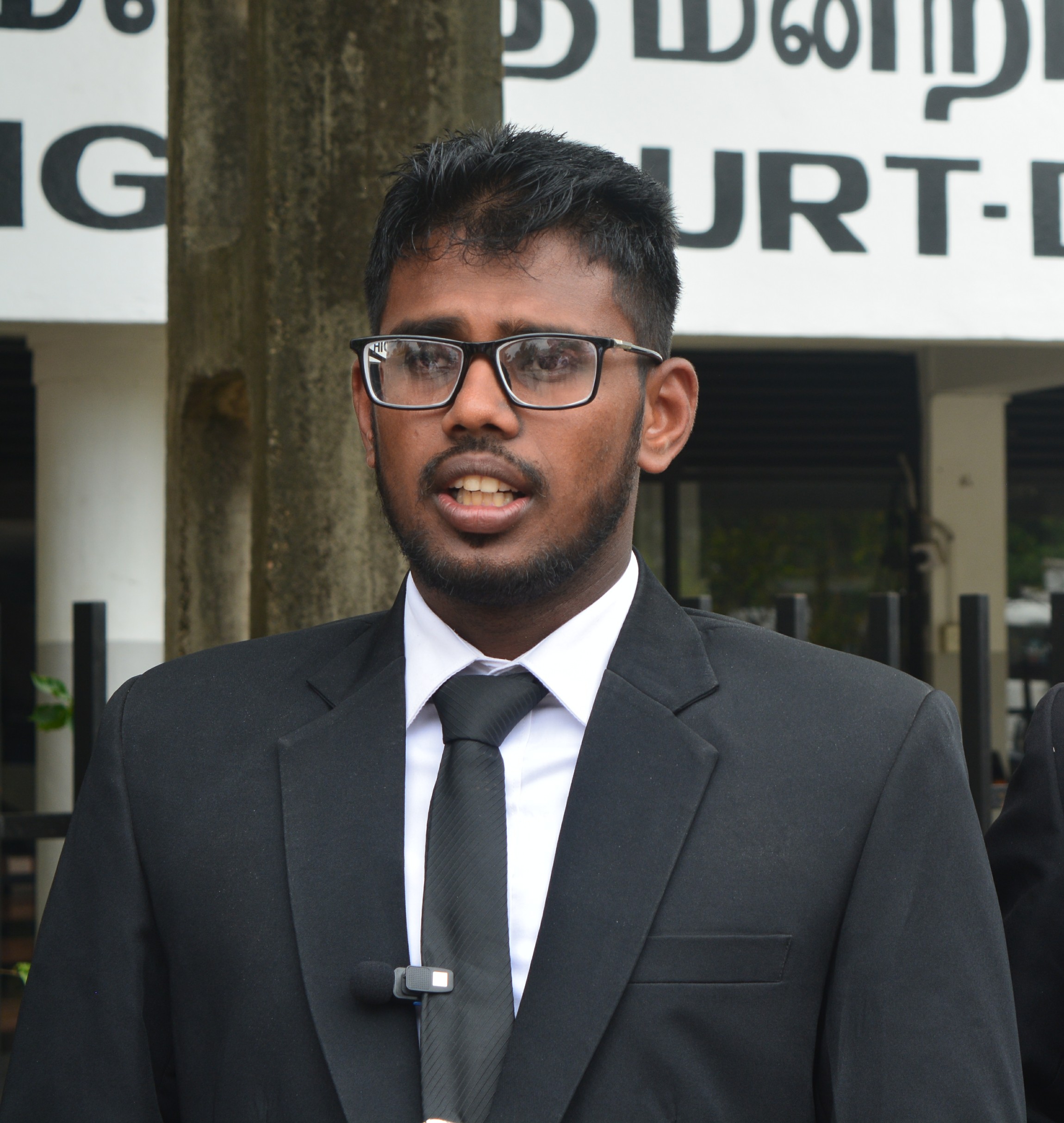
Jazeem is the eldest son of a Muslim family of five children of a poor farmer and day-labourer, residing in Mannar, some 300Km North to the capital Colombo. He is the author of Tamil poetry anthology, Navarasam [nine moods] published in 2017. After graduation he was employed as a Tamil Language teacher. On May 16, 2020, Jazeem was arrested by the Police Counter-Terrorism and Investigation Division (TID) allegedly on the suspicion of having “published books on and taught his students ‘extremism’ and ‘racism”. He was then wrongfully detained under the orders of ousted President Rajapaksa for thirteen months, during which period he was subjected to severe physical and mental torture including being cuffed to a table day and night continuously for five months, and forced to record a self-incriminating statement.
Incarcerated in remand custody thereafter, Jazeem was granted bail in mid June 2021 on strict conditions. The case against him on a false charge of ‘indoctrinating’ his students under the PTA concluded with Jazeems’s acquittal in December last year, without even requiring to call proof in his defence. His freedom was secured by mass support he gathered from around the world. He is yet arbitrarily listed as a designated person, who the government believes “commit or attempt to commit, participate in or facilitate the commission of, terrorist acts”, by the Ministry of Defence.
The petition states that it is with this personal experience of being a victim of the existing terrorism law that Jazeem is challenging the proposed law. Jazeem was prosecuted as part of the racist anti-Muslim witch-hunt of the then Sirisena-Wickremasinghe government and then of the Rajapaksa government.
The proposed law will apply within or outside the territorial limits of Sri Lanka. The government commits to “protect other sovereign nations and their people from the scourge of acts of terrorism”, which lays down the readiness of the Sri Lankan ruling class to support imperialism and states of the type of Zionist Israel, so that any agitation by the people against such support of war by the government will be declared unlawful and as an act of “terrorism”.
Any person, who commits any act or illegal omission specified in the law, with the intention of (a) “intimidating” the public or a section of the public; (b) wrongfully or unlawfully “compelling” the Government of Sri Lanka, or any other Government, or an international organization, to do or to abstain from doing any act; or (c) propagating war or, “violating” territorial integrity or “infringement” of sovereignty of Sri Lanka or any other sovereign country, commits the offence of “terrorism”. This definition of terrorism is overly broad and could easily be used against political dissent.
Number of other clauses in the Bill that define offences “are overly broad, and draconian and will have ripple and chilling effect on the democratic fabric of the society and upon the democratic rights of the people of the country, especially the working people, the marginalized, ethnic minorities, the political dissidents hostile to government austerity policies and to freedom of expression and journalism,” the petition states.
Punishments for the offences under the law reach upto twenty years of imprisonment to life sentence.
The law also proposes unprecedented powers to the executive President and administrative officers in respect of detention, rehabilitation and laying down regulations in respect of the offences.
Under Clause 31 (1)(b) of the Bill, a detention order sought by the Inspector General of Police (IGP) or any officer not below the rank of a Deputy Inspector General of Police authorised by the IGP could be issued by the Secretary to the Ministry of Defence. Under PTA, it is the Minister who has this power. This removes all authority of a Magistrate to review the justification for the deprivation of liberty, and that too for a minimum period of 2 months, extendable to a maximum period of one year.
The law will alarmingly enable a police officer together with a Deputy IGP to remove a suspect from under judicially supervised custody to executive controlled custody (administrative detention), without establishing the commission of an offence, and in any event, even if an offence had been committed, by merely reporting an allegation.
The law will legitimize an existing practice whereby persons in detention are compelled by the Attorney General (AG) to accept ‘rehabilitation’ which in effect is a form of punishment without finding of guilt. The danger is that an executive office, the AG, is empowered to compel a person into acceptance of or impose a penalty without proving guilt. The President is empowered to specify places of detention.
Under clause 79 of the Bill, the President will be empowered to designate any organization as a proscribed organization, which power could be used against opponent non-governmental organizations, trade unions, action committees, political parties, media institutions and persons.
These egregious provisions of this law will also enable the President, after an application is made to the High Court by the AG and court stamp is obtained, to issue “restriction orders” against a person who has committed or is preparing to commit an offence stipulated in the law. The President, on the recommendation made by the IGP or the Commanders of armed forces may also designate any public place to be a “prohibited place”.
These powers will strengthen the already dictatorial powers of the president and create conditions for a police state.
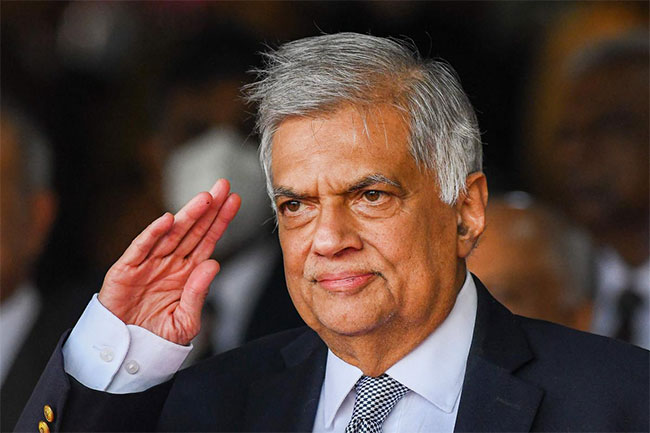
The capitalist ruling class is amassing its armory against the working class: including the Public Security Ordinance, ICCPR Act, the colonial Penal Code, Establishment Code, Essential Public Services Act, Bureau of Rehabilitation Act and some other laws. Yesterday (24), the Parliament passed another historically unprecedented repressive law, the Online Safety Act (OSA), to block internet freedom, social media activity and largely freedom of expression of any sort. The government is now able to declare, through a commission, what is “true” or “false” on its own and arrest, detain and prosecute anyone who states otherwise.
President Wickremasinghe’s government is committed to implementing harsh austerity measures dictated by the International Monetary Fund (IMF) on the shoulders of the working people and the oppressed. His government is extremely discredited, and even has no popular mandate, as his predecessor was ousted by mass struggles in April-July 2022. New laws and repressive measures like “Yukthiya”, a mass intimidation campaign in the guise of “war against drugs”, yet a lighter version of the Duterte-type, are being used against striking workers, demonstrations and student protests.
Wickremasinghe effectively declared war on the working people just as he was parachuted to the presidency in a constitutional coup through the Parliament, an institution utterly hated by the People. The working people are faced with a social counter-revolution. Defending democratic rights and the fight against austerity need the mass mobilization of its class, around their own rank-and-file organizations, across ethnicities and trades, nationally and internationally, to usurp political power to re-arrange the society on socialist lines.

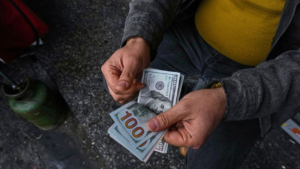
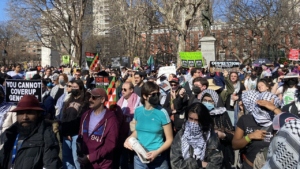

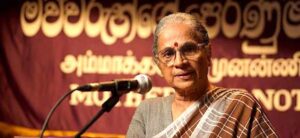
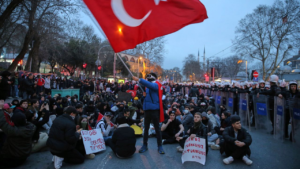
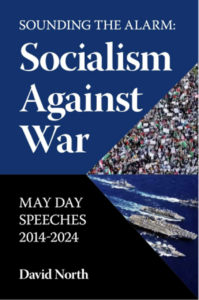
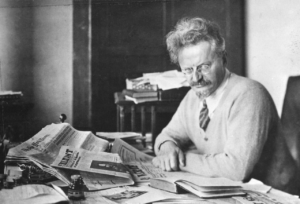
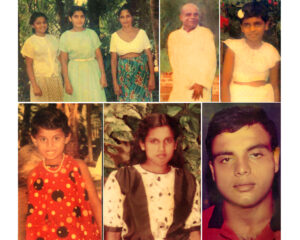
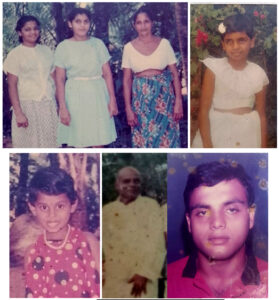
Sharp article, well done comrade!